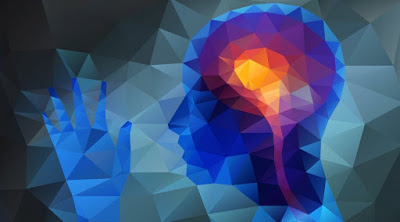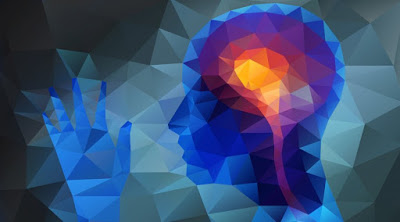Most cases of the disease occur in the province of Famagusta - Information Day in the Municipality of Sotiras
The Municipality of Sotira in collaboration with the Cyprus Association for Huntington's Disease invites you to the Huntington Disease Awareness and Awareness Day on Saturday, February 11, 2017, at 18:00 at the Sotiras Municipal Theater.
The event takes place in the context of public awareness activities for Rare Diseases Day. Huntington's Disease, a rare neurodegenerative disorder, unfortunately remains unknown to the general public, and according to statistical research, most cases occur in the Province of Famagusta.
What is Huntington's Disease?
Huntington's Disease (Huntington's Disease, HD) is a genetic inherited neurodegenerative disorder, which gradually affects the physical, cognitive and emotional state of the person with the disease. In most cases, the first symptoms appear between the ages of 30 and 50, while less often they can appear at a younger or older age (in about 5-10% of cases the first symptoms appear at the age of less than 20 years (Juvenile HD) , while in a 10% after the age of 60).
The interdisciplinary approach, support and care by experts (genetic counselors, psychologists, neurologists, nutritionists, physiotherapists, occupational therapists, speech therapists, social workers, psychiatrists, etc.) can offer a better quality of life to families directly affected or from the Disease.
How is it caused?
Huntington's disease is a genetic condition caused by a mutation in the "huntingtin" gene (IT-15 or HD or HTT gene) on chromosome 4, which is normally carried by every human, resulting in the extension of the DNA strand. The normal "huntingtin" gene normally contains 10-35 CAG repeats (cytosine - adenine - guanine).
While an increase in the number of recurrences to 27-35 is considered within the upper normal range and does not cause the Disease, there is, nevertheless, a possibility for the Disease to develop in future generations. People with an increase in recurrences between 36-39 are less likely to develop the disease. Some will develop symptoms, while others will not. People with 40 or more recurrences are predicted to develop the disease at some point in modern life expectancy. According to research, the smaller the number of recurrences, the later the first symptoms will appear.
The increased number of CAG repeats in the mutated gene results in the production of abnormal huntingtin protein, which is harmful to nerve cells.
How is it inherited?
The disease is inherited in an autosomal dominant manner. This means that if one of the parents carries the mutated gene, then every child, boy or girl, has an equal chance (50%) of inheriting or not inheriting the Disease.
Absence of Family History
Some people develop the disease without knowing the increased chances of its occurrence, as they do not have prior knowledge of a similar family history. This may be due to either a misdiagnosis at the examination of one of the parents, or the fact that the parent died before symptoms occurred, or in the case of an adoption in which the true family history was not known, or in cases where incorrect paternity certification. Very rarely, there is also the possibility of new mutations, which are caused by increased replications of the abnormal gene, which is inherited from a parent who has an increased number of replications in his gene, but these replications remain within normal limits (27- 35). Genetics consultant at the Cyprus Institute of Neurology & Genetics can inform you exactly about all the above.
Tackle
Clinical evaluation of motor, cognitive, emotional and mental symptoms determines the services required. Rehabilitation therapy, which can help maintain a person's functionality, includes physiotherapy, occupational therapy, speech therapy, well-thought-out diet and exercise. Responsible information, special psychological, neuropsychological and psychiatric support can make a positive contribution to issues related to cognitive and psychological disability, as well as neuropsychiatric disorders, where they exist.
Maintaining a normal body weight is vital. People who weigh less than normal and have reduced muscle mass, soon feel weak, as a result of which they are at the same time more prone to depression, apathy, infections, the development of drowsiness (wounds caused by skin pressure, due to constant immobility ), and need a longer recovery period, after another illness.
A high-calorie diet can possibly help reduce involuntary movements while enhancing cognitive and emotional function, speech and swallowing. Weight monitoring on a regular basis is especially important. People who are underweight or underweight should be referred to a dietitian for specialist advice.
The European Huntington Disease Network (EDN) has published in-depth studies and specific guidelines for therapists and individuals directly or indirectly affected by the Disease. The instructions include, among other things, tips related to speech therapy, physiotherapy, occupational therapy, diet, oral hygiene, etc.
EHDN, in collaboration with the scientific journal Neurodegenerative Disease Management, has published the above instructions on the internet, which you can also read on the Association's website (www.hda.com.cy).
Diagnostic Examination
The identification of the gene in 1993 led to the development of hematological examination with diagnostic accuracy. The diagnostic test is used to confirm the diagnosis in people who have symptoms of the disease. At this stage, the possible consequences of a possible positive diagnosis for the rest of the family must be seriously considered. Before performing the test, it is recommended to discuss with a genetics consultant at the Department of Genetics of the Cyprus Institute of Neurology & Genetics.
Pre-symptomatic examination
A healthy person, without symptoms of the disease, but with a relevant family history, may choose to undergo a screening test to determine the presence or absence of the mutated gene. If the person carries the mutation, then there is a high chance of developing symptoms of the Disease at some point within modern life expectancy. The test to detect the mutated disease gene is a personal choice of each individual, depending on personal needs and psychosynthesis. However, even if one chooses to avoid screening, modern IVF methods can ensure that a healthy child is born who will not carry the abnormal gene, even without letting the parent know if the he is ultimately a carrier or not. In any case, we recommend that you contact the Department of Genetics of the Cyprus Institute of Neurology & Genetics, where a competent geneticist or genetic counselor will explain all the above responsibly and in detail.
Diagnosis & Adaptation
The diagnosis of the disease usually causes great emotional upset in the family members. Surprise, confusion, denial, fear, anger, are all normal emotions, which are part of the familiarity with the new situation and the acceptance of the result of a positive diagnosis. Some families are already aware of the situation, as they have relatives who are facing the Disease. Members of other families, however, without previous similar experience, may be more shocked. Proper information and systematic support from the beginning are the basic conditions for accepting the diagnosis.
Huntington's disease is often referred to as a "familial" disease. It is important to recognize that every member of the family, whether they carry the abnormal gene personally or not, will be equally affected if another family member is diagnosed with the disease. By getting the desired positive result (that is, they are not carriers of the mutated gene), some may develop guilt complexes. And in these cases it is necessary to have their support from a specialist psychologist.
Often, the main caregivers in the daily life of people suffering from the disease are their family members. We must emphasize that for these caregivers it is necessary to manage the emotions that arise from the continuous contact with the patient. In any case, for the emotional discharge of both the patients and the relatives-caregivers, the family counseling and systematic psychological support is recommended.
For complete information about the treatment of the disease by patients and their family members in various fields (eg social, economic sector, etc.), we suggest that you contact the social worker of the Cyprus Institute of Neurology & Genetics.
Delayed onset of symptoms
Researchers recommend a healthy lifestyle, physical and mental exercise (eg sports, learning a foreign language or musical instrument, etc.) in order to delay the onset of symptoms. Healthy eating, combined with maintaining physical and mental activity, as well as avoiding intense stress, and enjoying the joy of life can have a very positive effect on people who carry the pathogenic gene responsible for the disease. of Huntington.
Prevalence of the Disease
The prevalence of the disease in Cyprus was calculated in 2015 by a study by the Cyprus Institute of Neurology & Genetics. The total number of registered patients and asymptomatic carriers is 65 people (7,61 per 100.000 population).
The above statistical results, however, are not representative, as the exact number of patients and asymptomatic carriers is not known. The fear of social stigma and the secrecy often paid by individuals and families directly or indirectly affected by the Disease prevent sufferers and their families from seeking substantial support at all levels. This event emphasizes the need to inform and encourage families to come to the Cyprus Institute of Neurology & Genetics, as well as to our Association, in order to receive responsible information and substantial assistance, always in the context of confidentiality and respect for medical confidentiality and dignity.
Research
Scientific research, worldwide, has made significant progress, both in understanding the Disease and in developing therapies that may prevent the progression of the Disease. For more information, you can contact our Link. You can also visit the website http://en.hdbuzz.net/ , which regularly publishes all medical developments related to the Disease, in simple and understandable language.
Cyprus Huntington's Disease Association
The Cyprus Huntington's Disease Association offers responsible information and support to all those directly or indirectly affected by the Disease (sufferers and their families, asymptomatic carriers, carers, health and social care professionals).
Specifically, the Association aims to:
• valid information and awareness of the families directly or indirectly affected by the Disease, the members of the Association and the wider Cypriot public,
• research to gather up-to-date information and conduct information activities to coordinate the proper and dignified treatment of patients and their families,
• Improving the quality of life of patients, their families, and their caregivers, with an emphasis on responsible information about the disease, diagnosis, prevention, treatment, care and psychosocial support.
In addition, the Association is a member of a wider network of collaborations between relevant associations and organizations, including the European Huntington's Disease Association and the Pancyprian Rare Diseases Alliance.
For further information, visit the website of the Association (www.hda.com.cy ) and follow his Facebook page (Huntington's Disease Association of Cyprus) or contact us directly via e-mail (hdacyprus@outlook.com).
How can you help?
• Get informed and updated!
• Understand and support those who need you!
• Become volunteers!
There are many needs in different areas where you can contribute: Help patients and carers, share your professional knowledge and experience, make a donation (either cash or equipment for people with mobility difficulties). Become a member of the Association and strengthen its voice!
Information, understanding, support, consistent effort define the responsible behavior for the treatment of the Disease, creating the conditions for a better tomorrow, a human Cyprus, a more beautiful world!
SotiraNews

